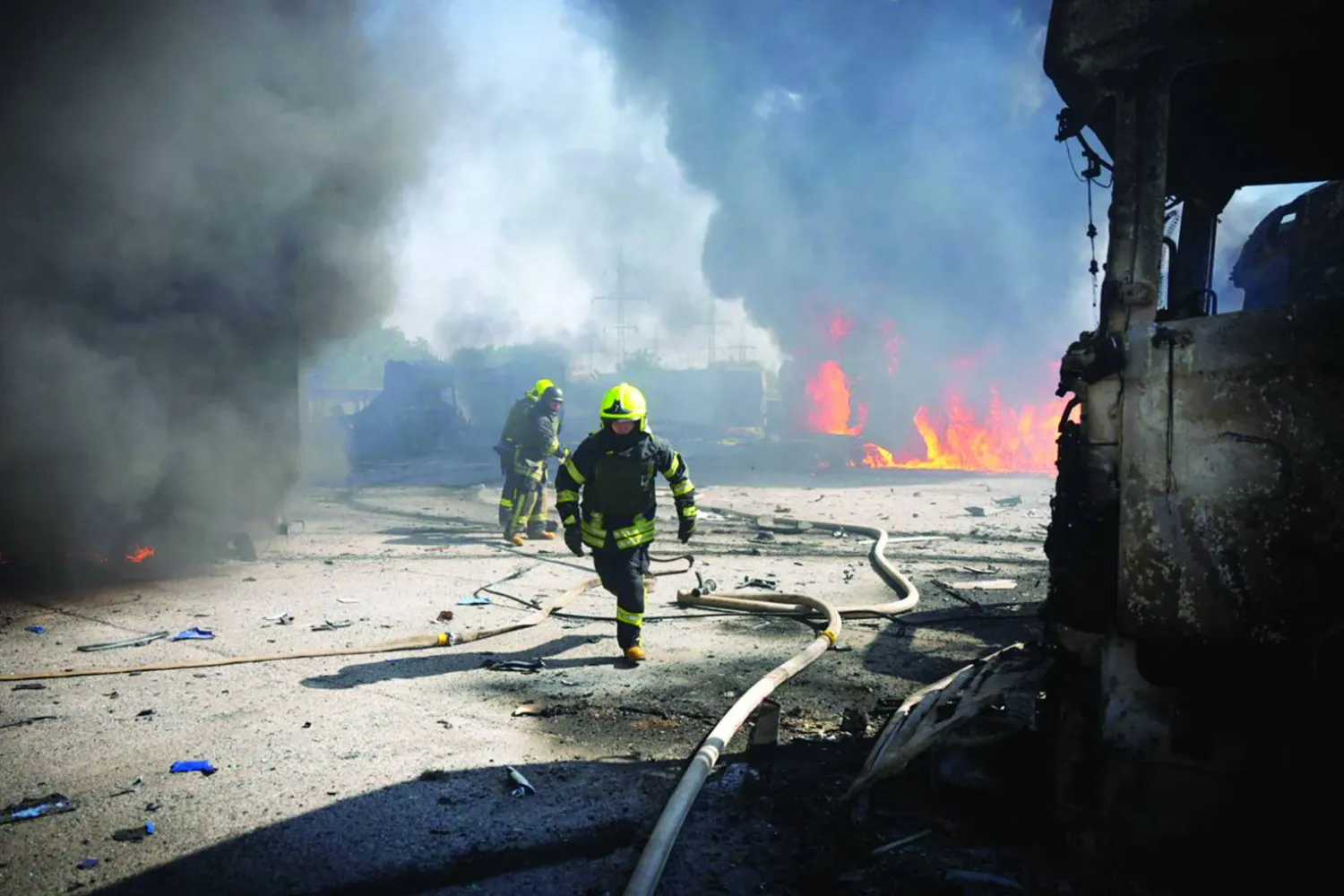Russia launched missile and drone attacks targeting scores of Ukrainian regions and killing at least six people, officials said on Tuesday, a day after Moscow's biggest air attack of the war on its neighbor.
Three people were killed when a hotel was "wiped out" by a missile in the central city of Kryvyi Rih, regional officials said. Five people were injured and one person was still missing after the strike, Serhiy Lysak, governor of the Dnipropetrovsk region that includes Kryvyi Rih, said on Telegram.
Separately, three people were killed in drone attacks on the southeastern Ukrainian city of Zaporizhzhia.
Three people were also injured in the Zaporizhzhia region and four were hurt in a missile strike on the northeastern region of Kharkiv overnight, local authorities said.
President Volodymyr Zelenskiy said on Tuesday that Ukraine would retaliate against Russia for its attacks.
He asked allies to consider joint air defense operations and provide long-range capabilities after Russia pummeled Ukrainian energy infrastructure with more than 200 missiles and drones on Monday.
During Tuesday's attack, Ukraine downed five out of 10 incoming missiles and 60 out of 81 drones, the air force said.
The Ukrainian air force lost track of 10 more drones that have likely come down somewhere on its territory, it said. One more crossed into Belarusian territory.
The Russian defense ministry said its forces had carried out a high-precision weapon strike on Ukraine overnight, the Interfax news agency reported.
Moscow denies targeting civilians since launching a full-scale invasion of Ukraine in February 2022, although thousands have been killed.
Several Russian military bloggers said Moscow's attacks were an "act of retaliation" for Ukraine's surprise incursion into Russia's western Kursk region - the first such action since World War Two.
In the capital Kyiv, the military administration said air defenses had shot down all incoming targets aimed at the city. There were no casualties and two small fires caused by debris were put out by the emergency services, local authorities said.









